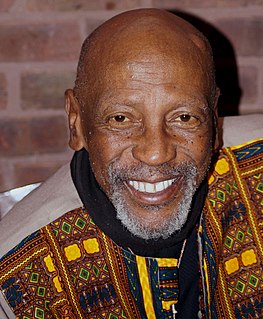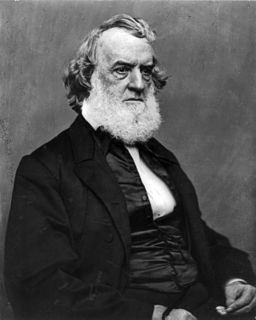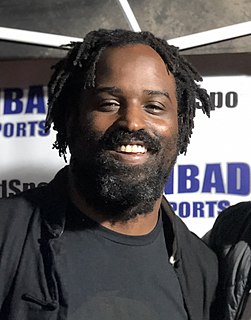A Quote by Dick Gregory
Last time I was down South I walked into this restaurant, and this white waitress came up to me and said: 'We don't serve colored people here.' "I said: 'that's all right, I don't eat colored people. Bring me a whole fried chicken.
Related Quotes
There were colored and white waiting rooms everywhere, from doctor's offices to the bus stations, as people may already know. But there were actually colored windows at the post office in, for example, Pensacola, Florida. And there were white and colored telephone booths in Oklahoma. And there were separate windows where white people and black people would go to get their license plates in Indianola, Mississippi. And there were even separate tellers to make your deposits at the First National Bank in Atlanta.
If you grew up white before the civil rights movement anywhere in the South, all grown-ups lied. They'd tell you stuff like, 'Don't drink out of the colored fountain, dear, it's dirty.' In the white part of town, the white fountain was always covered with chewing gum and the marks of grubby kids' paws, and the colored fountain was always clean.
On the Avenue in front of the White House were several hundred colored people, mostly women and children, weeping and wailing their loss. This crowd did not diminish through the whole of that cold, wet day; they seemed not to know what was to by their fate since their great benefactor was dead, and though strong and brave men wept when I met them, the hopeless grief of those poor colored people affected me more than almost anything else.
When I was growing up in rural Alabama, as a young child, about 50 miles from Montgomery, and we would visit the little town of Troy, or visit Montgomery or Tuskegee, I would see the signs that said, "WHITE MEN - COLORED MEN," "WHITE WOMEN - COLORED WOMEN."And I would come home and say to my mother and father and my grandparents, "Why?" "Why this?" "Why that?" And they would just tell me, "That's just the way it is! Don't get in the way. Don't cause trouble."
The miscegenation laws of the South only operate against the legitimate union of the races; they leave the white man free to seduce all the colored girls he can, but it is death to the colored man who yields to the force and advances of a similar attraction in white women. White men lynch the offending Afro-American, not because he is a despoiler of virtue, but because he succumbs to the smiles of white women.
Up until then I'd thought that white people and colored people getting along was the big aim, but after that I decided everybody being colorless together was a better plan. I thought of that policeman, Eddie Hazelwurst, saying I'd lowered myself to be in this house of colored women, and for the very life of me I couldn't understand how it had turned out this way, how colored women had become the lowest ones on the totem pole. You only had to look at them to see how special they were, like hidden royalty among us. Eddie Hazelwurst. What a shitbucket.
I was at a restaurant, and I ordered a chicken sandwich, but I don't think the waitress understood me. She asked me, "How would you like your eggs?" I thought I would answer her anyway and said, "Incubated! And then raised, plucked, beheaded, cut up, put onto a grill, and then put onto a bun. Damn! I don't have that much time! Scrambled!"
I feel most colored when I am thrown against a sharp white background........Beside the waters of the Hudson" I feel my race. Among the thousand white persons, I am a dark rock surged upon, and overswept, but through it all, I remain myself. When covered by the waters, I am; and the ebb but reveals me again." How It Feels to Be Colored Me
South Africa used to seem so far away. Then it came home to me. It began to signify the meaning of white hatred here. That was what the sheets and the suits and the ties covered up, not very well. That was what the cowardly guys calling me names from their speeding truck wanted to happen to me, to all of me: to my people. That was what would happen to me if I walked around the corner into the wrong neighborhood. That was Birmingham. That was Brooklyn. That was Reagan. That was the end of reason. South Africa was how I came to understand that I am not against war; I am against losing the war.
I came back to Louisville after the Olympics with my shiny gold medal. Went into a luncheonette where black folks couldn't eat. Thought I'd put them on the spot. I sat down and asked for a meal. The Olympic champion wearing his gold medal. They said, "We don't serve niggers here." I said, "That's okay, I don't eat 'em." But they put me out in the street. So I went down to the river, the Ohio River, and threw my gold medal in it.































